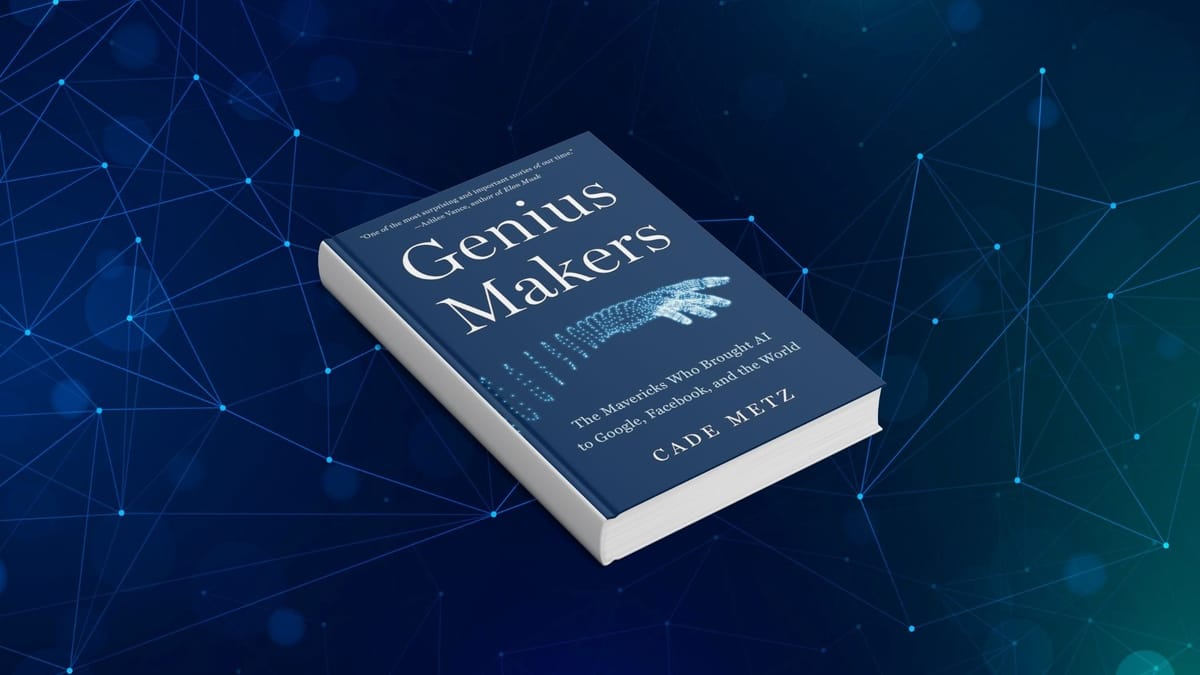If You Only Read One Book on AI…
The backstory of AI in "Genius Makers" is more than a behind-the-scenes drama. It’s the ultimate primer for marketers and brand leaders.

Some called it a lost cause. By the early 2000s, neural networks—a once-promising route to machine intelligence—seemed destined for the academic scrapheap, their funding all but gone. The few researchers still clinging to them were ridiculed as dreamers. Then, in 2012, a small team led by Geoffrey Hinton at the University of Toronto shocked the AI world.
Entering the annual ImageNet contest—a rigorous challenge testing a computer’s ability to recognize objects in photos—the group’s deep neural network didn’t just outperform older methods; it obliterated them, sparking a renaissance in AI research. What had been dismissed as a dead end suddenly became the hottest ticket in tech, setting off a chain reaction that reshaped not just the field of AI, but the entire tech landscape—and our world.
In Genius Makers: The Mavericks Who Brought AI to Google, Facebook, and the World, Cade Metz explores how this unassuming milestone became the catalyst for a global race. He transports readers from Canadian university labs to Silicon Valley boardrooms and backrooms, revealing how AI’s once-controversial methods transformed into the backbone of tech giants—and a disruptive force for countless industries, including marketing.
By now, you’ve read the headlines: Artificial intelligence is everywhere. New AI tools appear by the week. Everyone insists you can’t afford to fall behind. But Genius Makers challenges us to look beyond the hype. It’s not just an origin story; it’s an exposé on how AI evolved from a niche academic pursuit into a worldwide phenomenon—and why it’s barreling forward faster than anyone can fully grasp.
In Gladwellian fashion, Genius Makers dives into the personalities driving AI’s rise. You meet Hinton, whose decades of research on neural networks finally broke through in 2012. You follow Yann LeCun, whose convolutional networks were years ahead of their time, and Yoshua Bengio, who bolstered the theoretical foundations of deep learning. You see how Fei-Fei Li’s ImageNet project provided the massive datasets these algorithms needed to flourish—and how tech moguls raced to secure these researchers for their own corporate labs.
That’s what makes Genius Makers essential for marketers and brand leaders. This isn’t another how-to manual on ad targeting or content creation. It’s a backstage pass to AI’s most pivotal moments—moments that help us cut through the relentless hype. Once you see how AI crawled out of skepticism and scarcity to become an undeniable force, you’ll recognize which innovations genuinely matter and which are little more than buzz. You’ll also appreciate why global corporations and entire nations are fighting to dominate AI’s future, and how that arms race might alter the dynamics of your industry.
When the headlines about new AI tools, startups, mergers, or capabilities start to blur together, a deeper historical perspective becomes your greatest ally. By understanding the roots of today’s developments, you'll anticipate which matter to your business and which are mere distractions. You’ll feel less whiplash from the next GPT or the latest disruption—because you’ll grasp the long trajectory. This perspective is invaluable whether you’re choosing which tools to adopt, which skills to build, or which type of talent to hire.
Beyond strategy, Genius Makers raises ethical questions no marketer can ignore. If an algorithm can sway opinion or automate decisions, who’s accountable when something goes wrong? Metz doesn’t offer tidy answers, but he lays out the stakes clearly. The heroes—and antiheroes—of this story grapple with data privacy, unintended biases, and other dilemmas that marketers and brand leaders must factor into their plans if they want to adopt AI responsibly.
As marketers, we’re accustomed to chasing new tactics. But Genius Makers argues for something much more valuable: context. At a time when AI evolves at breakneck speed, new tools arrive every day, and competitors share the same automated superpowers, context is your secret weapon. Arm yourself with it. And you won’t just stay on top of the AI curve, you’ll see how it was drawn—and where it might bend next.






